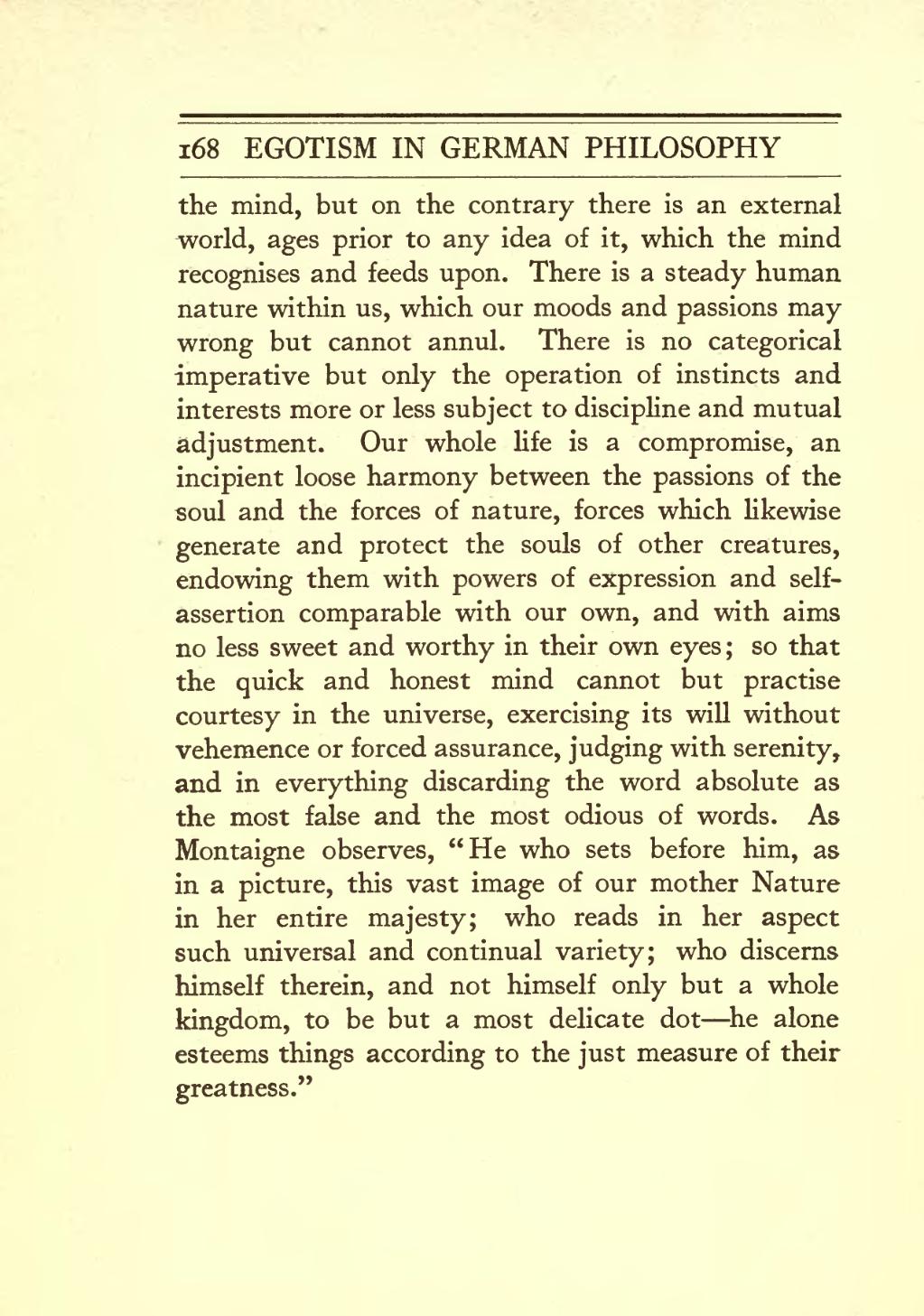the mind, but on the contrary there is an external world, ages prior to any idea of it, which the mind recognises and feeds upon. There is a steady human nature within us, which our moods and passions may wrong but cannot annul. There is no categorical imperative but only the operation of instincts and interests more or less subject to discipline and mutual adjustment. Our whole life is a compromise, an incipient loose harmony between the passions of the soul and the forces of nature, forces which likewise generate and protect the souls of other creatures, endowing them with powers of expression and self-assertion comparable with our own, and with aims no less sweet and worthy in their own eyes; so that the quick and honest mind cannot but practise courtesy in the universe, exercising its will without vehemence or forced assurance, judging with serenity, and in everything discarding the word absolute as the most false and the most odious of words. As Montaigne observes, “He who sets before him, as in a picture, this vast image of our mother Nature in her entire majesty; who reads in her aspect such universal and continual variety; who discerns himself therein, and not himself only but a whole kingdom, to be but a most delicate dot—he alone esteems things according to the just measure of their greatness.”
